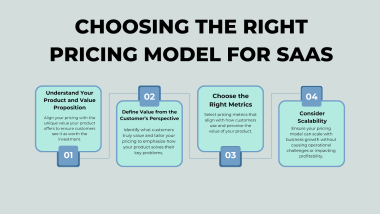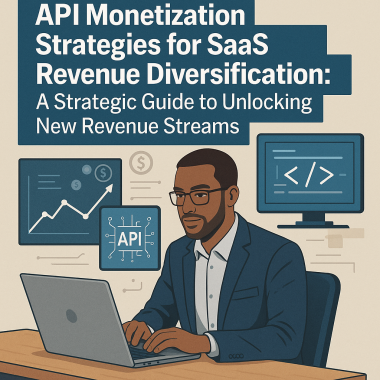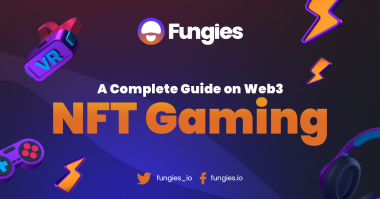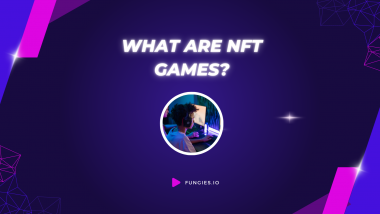How to Sell Your Game Codes: Monetize Your Gameplay
Any published indie game developer can tell you that making the game is only half the battle. The complex process of getting a finished product to an appropriately sized audience efficiently and effectively without breaking the schedule or the budget is key. Which storefront & platform the developer uses often determines much about this process before it even begins. For example, Epic Games accepts far fewer games and prefers games of certain genres, while Steam takes the largest cut of any of the big platforms.
Controlling a game’s finances, audience engagement, brand, analytics, and updates are all priorities of the indie developer. No platform has everything perfect, of course, but for developers able to sort their priorities, there are clear winners. By understanding how to sell game codes, indie developers can navigate these choices more effectively.
Select a Platform for Selling Game Codes
There are countless platforms for obtaining and selling game codes. They can usually be divided into two categories, those that Host games, and those that create a Webstore to sell games. Only Hosting services will generate keys, while other platforms instead resell these keys using other services. These Webstores can have better revenue split, more attractive storefronts, or the like.
Steam
Steam is 70% of all PC gaming for a reason, it is the crown jewel of indie development, and only recently are major game publishers trying to separate themselves. Even so, big studios like EA simply copy Steam and create their own platform to keep revenue. Steam will drive significant traffic to your game, and it is the one-stop shop for indie game development at small to medium scales.
Advantage: Marketing and Wishlists to sell the game. Traffic. Multiplayer.
Disadvantage: A 30% revenue split takes a large piece of the pie.
GOG
Good Old Games is another game-hosting storefront, one that offers exclusively Non-DRM games. These are popular in the days of AAA developers adding performance-taxing DRM and anti-piracy methods that can even ruin a good game.
Advantages: Non-DRM appeals to some customers.
Disadvantage: Also takes 30%, so it is no improvement over Steam. Provides no additional marketing over Steam despite being a Hosting platform. GOG is known for bad communication. First-time indie developers can’t get on the platform, as it is a curated platform. No multiplayer networking, requiring the developer to run their servers.
Epic Games
Epic wishes to dethrone Steam as the ruling Hosting platform. It has its online services that can support multiplayer game networks, as an alternative to Steam’s. It is a more modern and sleek platform, and its usefulness is boosted by the success and fidelity of the Unreal Engine.
Advantages: A 12% revenue split is a dramatic improvement, also eliminating the Unreal Engine’s cut when selling on the Epic Store. Offers Multiplayer servers.
Disadvantage: The Epic Store has proved much more difficult for developers since its inception. It was only made public in September 2023, and so is in its early days. You will also have less control over game builds on Epic, as each one needs to go through a vetting procedure.
Fungies
This platform, exclusively a Webstore platform, allows you to take a game hosted on Steam or Epic and sell its game keys (giving the platform a 0% revenue split) and sell them on Fungies (which takes a 5% + 50c revenue split). While there are many such platforms, the selling point of this one is its customizable nature, which helps you sell game codes effectively.
Advantages: A 10% revenue split. Setting the domain of the page in your own name. Customizing your own game and developer page extensively with backgrounds, colors, theming, and more. Think Shopify, for games!
Disadvantage: Exclusively a Webstore point, and so you will want to take advantage of the traffic from Steam and then direct players to Fungies to get a higher revenue share. (But do not break Steam’s rules!)
Itch.io
Itch has a reputation for indie games, shovelware games, and “first-timer” games. It does act as a Hosting and Webstore platform, however. It can make transactions and provide game files or a key at the point of sale. Itch provides little to marketing and traffic to your page, but its revenue split model is entirely optional.
Advantages: A “pay what you want %” revenue split means that ailing indie developers can set it to 0% and keep 100% of the revenue after appropriate VAT taxes. An ideal place for indie developers to sell keys to hardcore supporters so that more of the money goes to the creators.
Disadvantage: As a Host, there will be no multiplayer network provided and it provides no meaningful visibility to the game. As a Reselling point, Itch does not offer refunds, and so you might end up with dissatisfied customers who could’ve gotten a refund if they bought a key directly from Steam.
G2A.com
This game platform is primarily player-oriented, as it does not support the sale of large numbers of keys. It does, however, allow players to resell keys they received in bundles for a portion of the marketplace value. In between sales, scalpers often buy and resell game keys here at an individual level to turn a profit.
This platform is not for game developers to sell keys on, rather, it is for players to resell keys they’ve already bought. It is mentioned here because the moment game developers begin selling keys off-platform, users can scalp keys like this. This won’t lose the developers money, however, as a key is still bought! Nevertheless, it is an important market fact that developers should know.
Advantages: Can buy games cheaper.
Disadvantage: A platform for player reselling, not original sales.
Determine the Price you Want to Sell your Game Codes
From here on, we will assume you have chosen a Hosting platform that can generate game keys for a Webstore elsewhere. Doing so allows you the benefits of the first platform while selling more keys at a better revenue share on another platform.
This is done by many successful indie developers who understand how to sell game codes effectively!
The Rules
Steam has two clear rules, you cannot generate more than 5,000 keys, and you cannot sell keys at a lower price off-platform. These are mandatory rules, and the only two that apply to this practice. Follow them or you’ll risk penalty and/or de-listing from Steam!
Steam wants its users to get a good deal. When you generate keys to sell elsewhere, it makes 0% of the revenue while still paying for the web traffic. If the game is multiplayer, it also pays for the server bandwidth, which can be quite expensive. In the past, developers could generate tens of thousands of keys and use the store page to direct users to a personal storefront. There, the developer keeps much more of the income, which is now disallowed.
You can still direct the users elsewhere on pages besides the Steam page, but you cannot give them a better deal as an incentive to purchase off the platform that gives you a better split. Sales are the exception. If you run a sale off of Steam, you must apply said price decrease to your Steam listing “within a reasonable time.” To be safe, we recommend simply matching your sales between all platforms in all cases.
Provide Clear Descriptions of the Game
No matter which storefront(s) you choose or how many pages you create, you will need to make the page attractive to sell game codes effectively. You could even use every single storefront, though the hassle would likely not be worth it. For example, adding a game to GOG.com once it is already on Steam will see very marginal sales. That is, unless you have a problematic DRM.
Now, just what goes into an attractive storefront?
Graphical Assets
Your main trailer and (primarily gameplay) screenshots of the game will decorate each and every storefront whether it is Steam or Itch.io, but the decoration should not end there!
Users in “shopping mode” hate large blocks of text. Usually, you have seconds to catch their attention and have seconds to lose it. Paragraphs should be broken up with gifs, headers, small images, or the like. This keeps it legible and logically divided!
Theming
Many platforms do not support this, but it is a surefire way to communicate game themes and genres before the trailer even finishes buffering! Steam and Epic use a dark black theme, but other platforms let you change this. Fungies, for example, allows you to change the background image, the color scheme, and everything about the game page, which can significantly enhance how you sell game codes!
Cozy games, puzzle games, adventure games, and many others can benefit from this immediate communication of theme. You wouldn’t match a Pokemon game with a gray, industrial background, after all!
Handle the Transaction Securely
Many outdated platforms exist which do not properly handle payment and transactions. If you attempt to integrate payment processing into your own website to sell a game directly off of a developer’s website, you will encounter the headaches involved here.
Hosting platforms such as Epic and Steam inherently handle payments through their own processes, but they also have massive legal and tax accounting teams. Indie studios do not have the time nor the reasoning to employ these. Instead, they may simply find a Webstore that can handle secure transactions for them.
Fungies is one such platform, integrating secure payment processing through Stripe, a sleek and modern online transaction system that operates on many more websites and storefronts than you might think!
Taxes, VAT collection, refunding, and so on can be a headache. Choose a platform that keeps such things out of sight and out of mind. Making a game and learning how to sell game codes to players worldwide is enough of a headache already!
Promptly Deliver the Game Codes to the Buyers
You never want to be stuck in a situation where a user has purchased a game key but has not received a key. Worse still if this happens when you are not looking, or requires you to manually approve or operate each and every sale, such as selling game keys off of Ko-fi.com.
Modern Webstore platforms will directly email game keys to users or provide them through the website directly. By understanding how to sell game codes effectively, you can ensure that users receive their keys securely and promptly. Having a secure email keeping the key safe and encrypted permanently in the user’s inbox, they will rest easy knowing the key was not leaked and will not be erased should they delay in activating it.
How to Sell Game Codes on Fungies
- Customize Your Game’s Store
Fungies.io allows fun and immediate customization of a game’s storefront, which is a crucial aspect of learning how to sell game codes effectively. It can even be done before creating an account or connecting a single piece of personal information! Thematic colors, font, logos, and much, much more can be customized to better suit the game developer’s studio and their individual games.
Once done, an account must be created to save this customization.
- Add Game Keys
Game keys must be generated from the Hosting platform, such as the Steamworks portal or the Epic Developer Community. This can take hours to days to be approved, but once the array of dozens to thousands of keys is obtained, it is as simple as uploading them to the platform.
Knowing how to sell digital game codes effectively involves ensuring your game is attractive to potential buyers. Once your game keys are uploaded, your game is ready for sale! Let’s make sure people want to buy it, however.
- Add Game Assets
Game assets and artwork spruce up the store page to make it an attractive marketing device to invite purchases. Even if the customer has arrived from another storefront, such as Steam, or your community, such as a studio website, they still must make the final decision and click the buy button here!
Add gifs, headers, logos, images, and anything game or studio-related!
- Connect and Publish Domain
You will need to connect a Stripe account to receive payments, and then you can choose and publish a public subdomain! This allows you a permanent link for your game on Fungies, and another for your studio.
Fungies is a leading platform among those Webstores selling game keys, as its share leaves you an additional 25% revenue from your game over Steam’s rate. With that increase, you’ll be making money faster than you can click on this Fungies link and make your game’s page! Have fun, and have a great game launch!






